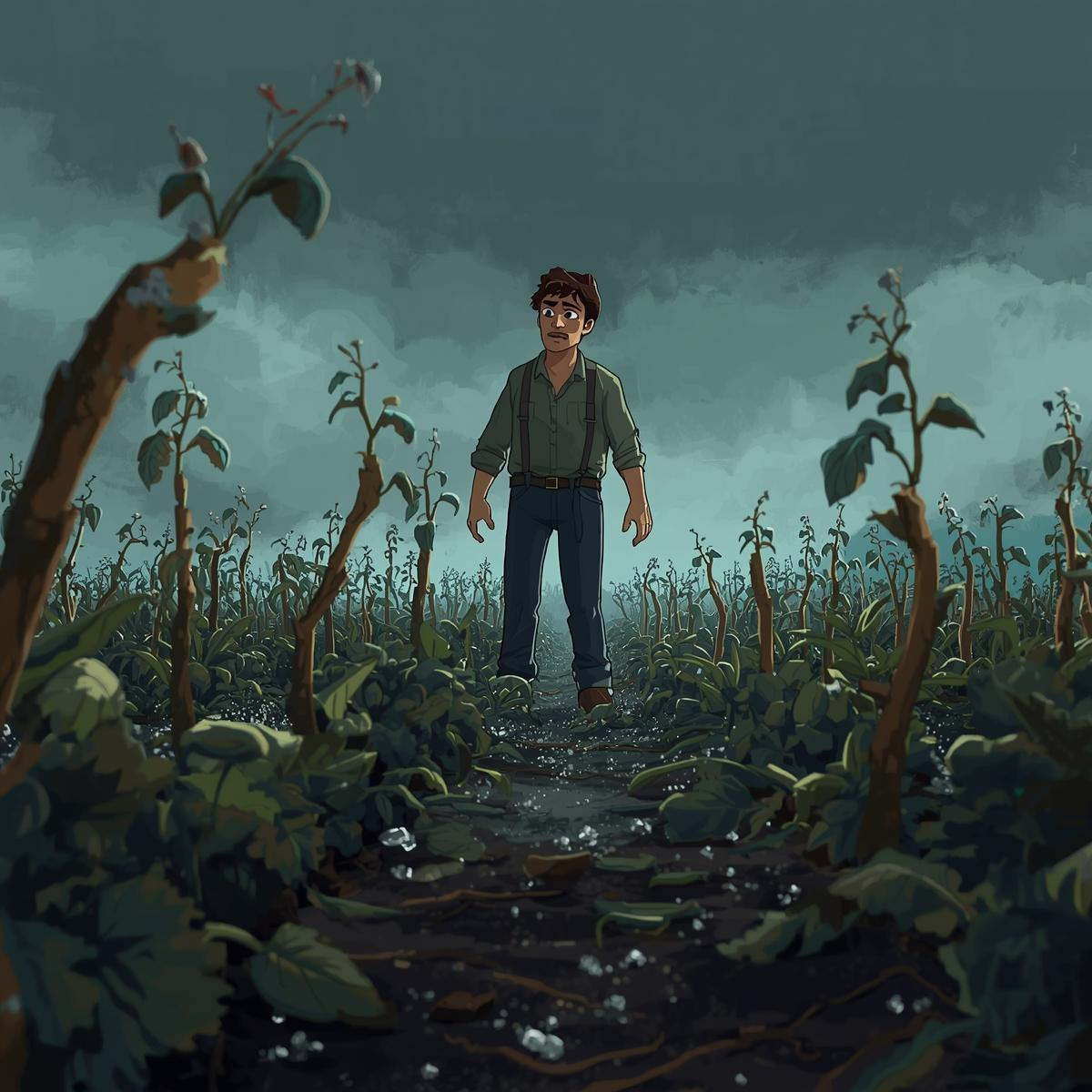List of content: The Wind by Subramania Bharati
The Wind by Subramania Bharati is the translated version of the original Tamil poetry Kaatru. Bharati was an independence activist, and his poetry reflects his passion for freedom and liberation. The untamable wind capable of uprooting decayed, rotten objects underscores his ideals that only indomitable internal and external strength is competent enough to break the shackles of slavery.
Summary and Analysis (The Wind by Subramania Bharati)
Bharati coerces the wind to come in softly without breaking the window shutters or hurling books from the shelf. He pleads with the wind to show mercy, as he is acquainted with its erratic, disruptive character. Yet, the wind behaves like an unruly child and disregards the plea, dismantling physical, material, and mental stability. It mindlessly proceeds to tear pages of books and brings a heavy downpour. Witnessing the chaos caused by it, the poet’s tone turns accusatory, almost rebuking the wind for its barbarity.
The wind is an unpredictable, destructive force that enjoys wreaking havoc in human lives unconcerned. It mocks the weak buildings with decayed doors, broken rafters, and rotting wood. It mercilessly takes helpless, innocent, fragile lives with rotting bodies and cowardly hearts. Bharati accuses the wind of deliberately toying with fragile lives and objects. It transforms into a wild, defiant entity, resisting human commands and echoing nature’s sovereignty over men.
The poet elevates the elemental wind to the status of God and describes how it winnows grain, purifying our staple food. The same force also destroys, eliminating the world of anything frail and feeble. It has no patience for weakness. Bharati advises his readers to make allies with the wind by building stable homes, closing the door firmly, practising healthy habits to cultivate powerful bodies, and strengthening our hearts. The wind snuffs the frail flicker of fire but flourishes a blaze. It extinguishes the frail but amplifies what is robust, reinforcing his belief that weakness falters while resilience and strength endure.
Poetic Devices used in ‘The Wind’ by Subramania Bharati
The Wind
by Subramania Bharati
(translated by A. K. Ramanujan)
Wind, come softly. ( 1- 4)
Don’t break the shutters of the windows.
Don’t scatter the papers.
Don’t throw down the books on the shelf.
The poetical devices used in the first four stanzas of the poem are as follows—
a) Personification
Here the wind has been given human-like qualities — mischievous, aggressive, childlike.
b) Anaphora
The word “don’t” is repeated three times at the beginning of the successive lines.
c) Repetition
The word “Don’t” is repeated three times.
The poem opens with the poet pleading with the wind to come in softly. He urges the wind to not break the shutters of the window, coercing it to refrain from throwing the books from the shelves or scattering the papers, as if he is talking to a mischievous child. The poet desires to befriend it; how is that possible with its unpredictable nature?
d) Apostrophe – The poet directly addresses the wind.
There, look what you did — you threw them all down. ( 5-8)
You tore the pages of the books.
You brought rain again.
You’re very clever at poking fun at weaklings.
Bharati again employs the following poetic devices in the next four stanzas—
a) Personification—The wind is attributed childish qualities. The poet also calls it clever and blames it for mocking human weaknesses.
b) Anaphora –
The word “you” appears repeatedly at the beginning of the successive lines of the poem.
c) Repetition—You repeat three times to emphasise the poet’s blaming the wind for its mischievous, unruly activities.
d) Metaphor— wind is a metaphor for difficulties.
The poet’s tone changes from pleading to accusatory as the wind proceeds to ignore the poet’s plea. The wind carelessly tore pages of the book and brought a downpour, mocking frail humans for their incapability to prevent the inevitable.
“Frail crumbling houses, crumbling doors, crumbling rafters, ( 9-11)
crumbling wood, crumbling bodies, crumbling lives,
crumbling hearts—”
a) Repetition –
The word “crumbling” repeats four times.
b) Anaphora —
‘Crumbling’ is used at the beginning of two successive stanzas of the poem.
c) Metaphor—
The phrases “crumbling bodies” and “crumbling lives” mourn the weakness of frail human physiques, which is attributed to laziness. Crumbling hearts is a metaphor for timidity and cowardice.
The poet laments at the devastation that the wind causes in its whim. Indomitable and erratic, it obliterates anything decaying and disintegrating, even if they are human lives.
“The wind god winnows and crushes them all. ( 12 – 13)
He won’t do what you tell him.”
a) Personification –
” wind god”: this phrase attributes divine quality to the natural phenomenon of the wind, a non-human energy, drawing inspiration from Hindu mythology.
b) Metaphor – wind is compared to Vaayu, the god of air in Hindu mythology.
c) Alliteration – is the repetition of the same consonant sound at the beginning of nearby words.
“wind god winnows”,
“won’t do what you”
Here the consonant ‘w’ is repeated in both lines, making it the poetical device, alliteration.
The repeating consonant (“w”) sound mimics the whooshing sound of the wind and also illustrates the unruly nature of the wind.
The poet reveres this supreme power of wind; while it purifies the grains, it also devastates anything rotten.
“So, come, let’s build strong homes,(14-17)
Let’s join the doors firmly.
Practise to firm the body.
Make the heart steadfast.”
In these lines the poet urges us to build strong foundations.
a) Metaphor –
‘Strong homes’ – the phrase implies the poet’s urgent request to the youth to build a strong physique with an unyielding spirit to overcome obstacles and challenges in life.
b) Enjambment–
The continuation of a sentence beyond the end of a line. “So, come, let’s build strong homes,
Let’s join the doors firmly.” – Here the idea continues to the next line.
“Do this, and the wind will be friends with us.“ (18)
He advises us to befriend this indomitable spirit of wind to withstand the obstacles and oppression.
a) Personification –
“Wind will be friends with us.”
associating human nature with an element.
b) Metaphor – In these stanzas wind is a metaphor of strength and resillience
“The wind blows out weak fires.( 19-20)
He makes strong fires roar and flourish.”
a) Imagery – is a poetic device that applies vivid language to appeal to the senses; for example, ‘wind blows out weak fires’ and ‘strong fires roar and flourish’ create a visual image as well as a sound image.
The readers can see, hear and feel the purifying and yet devastating activity of the wind.
b) Contrast – The poet employs contrasting qualities – weak and strong.
The poet reminds us that the wind extinguishes the flickering flame but flourishes the blaze. Similarly, the resilient and capable conquer life’s trials, while the weaklings falter and fail. Obstacles fortify our spirit and help us to achieve our potential.
“His friendship is good. (21-22)
We praise him every day.”
In the end the poet again advises us to befriend and embrace the dynamic energy of wind and appreciate its divine guidance.
a) Symbolism – The wind ultimately symbolises obstacles, strength and resilience, purification and also transformation.
Question Answers
- What are the things the wind does in the first stanza? (Wind by Subramania Bharati)
Bharati welcomes the wind with a gentle plea to come in softly without breaking human possessions like window shutters and books. However, the wind is a defiant entity. It resists the poet’s urge and starts to hurl books from the shelf, tearing pages. The wind also brought rain with it.
2. What does the poet mean by ” wind god winnows”?
Winnowing is a process of separating grains from their husks. The wind, erratic and unpredictable, tears down anything rotten and decayed, just as obstacles break down cowardly, frail humans. The poet reveres the wind as a god, insinuating that it purifies the world of the feeble and weak, destroying the rot for new growth.
3. What should we do to make friends with the wind?
The poet advises us to build resilient buildings and to strengthen our bodies and hearts to counter the wind’s force. He believes that our hard work and strength will gain us the wind’s friendship because nature rewards fortitude.
4. What do the last four lines of the poem mean to you?
The poet speaks from his observation that wind extinguishes small fires, whereas it amplifies blazes. The wind destroys the frail and flourishes the strong. The wind is metaphoric of strength and resilience. Therefore, he implores the youth to strengthen their body and mind. The obstacles consist solely of difficult experiences. Their purpose is to teach us. We should learn from them to become wise. It advises us not to abhor difficulty but to tackle it with strength and courage.
Important Question answers: (Wind by Subramania Bharati)
- Explain how the ‘wind’ is both literal and metaphorical in the poem Wind by Subramania Bharati.
- The wind, an integral part of the environment and atmosphere, is the instrument of both life and destruction. In its furious form the wind transforms into an instrument of impulsive devastation—wrecking houses and buildings, uprooting giant trees and annihilating people’s lives, whereas in its gentle form it winnows the grain of our sustenance. Subramanium Bharati reveres this supreme power of the wind in his poem “Kaatru”, or “The Wind”, imploring the readers to befriend the natural phenomenon. The wind’s dynamic energy snuffs the feeble flame but bolsters a blazing inferno. The wind is metaphoric of strength and resilience. The poet repeatedly emphasises that the wind obliterates only the decayed and deteriorating objects. An infirm, feeble body with discriminating, archaic ideas is incapable of sustaining a society and culture when confronted by indomitable life circumstances. He beseeches the youth to fortify their connection with strength. Thus, the wind in its literal as well as metaphorical essence reminds the youth that only the strong conquer the trials of life.
- How does the poem Wind by Subramania Bharati reflect human resilience and strength?
- Subramanium Bharati was an eminent figure in the Indian Independence movement. He was not only a poet and writer but also a social reformer and activist whose writings inspired a generation to transform their obsolete thoughts and opinions and challenge themselves to adapt to modern and progressive thinking. Bharati’s ” Wind” stands as a testimonial of strength and resilience. The natural phenomenon embodies both ferocity and benevolence: While the wind ushers in rain and winnows the grain of our sustenance, it also destroys crumbling houses with decomposed rafters and wood and annihilates the weak and feeble with timid hearts. The poet beseeches the youth to befriend this supreme force and integrate its dynamic nature and vigorous energy to cultivate a formidable spirit. The wind snuffs the feeble flame but invigorates the blistering blaze. Only a resilient, progressive individual with an unwavering heart can conquer life’s trials, whereas a frail and feeble body with an inflexible mind succumbs to the circumstances of life.
- What lessons about life does the poet teach us through the behaviour of the wind in the poem ‘The Wind’ by Subramania Bharati?
- The wind is the harbinger of purification and transformation. It is an indomitable phenomenon that ushers in rain for harvest and yet wrecks the disintegrated foundations. Subramania Bharati employs the wind as an exemplar to instigate the youth to embody this evolutionary energy and liberate themselves from the constraints of ignorance and slavery. He implores the youth to befriend this unyielding and forceful spirit of the wind that destroys crumbling, decayed objects. Just as wind purifies the grain by winnowing undesired material, we must likewise cleanse ourselves of degenerate ideas that resist change and transformation. Bharati encourages us to embrace progressive thinking and to strengthen our physique. The poet reminds us that while the wind extinguishes a weak flicker of flame, it invigorates a blazing inferno. Similarly, obstacles and challenges obliterate the timid and obstinate but nourish the resilient and brave. Through the metaphor of the wind, Bharati teaches us to embrace courage and adaptability to conquer oppression and weakness.





